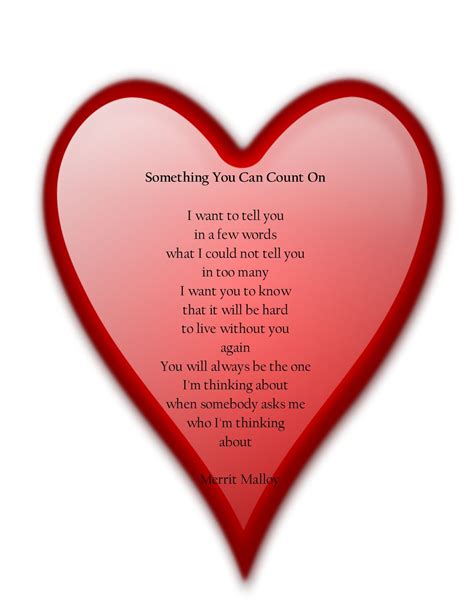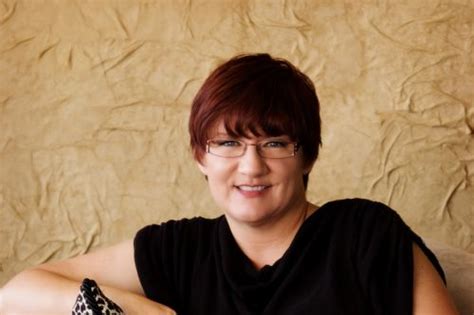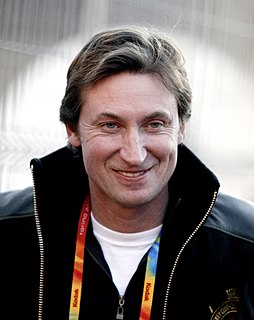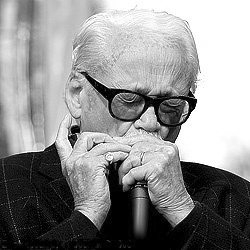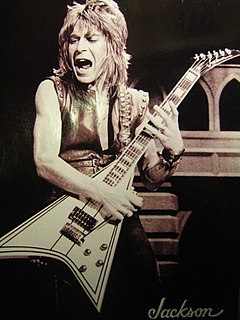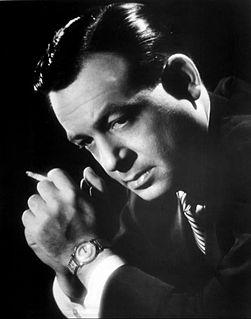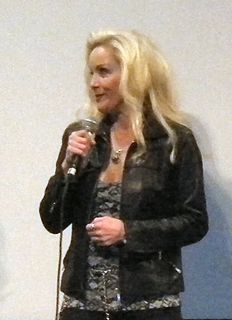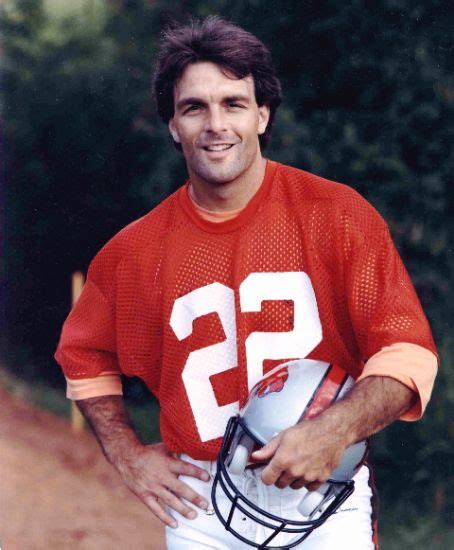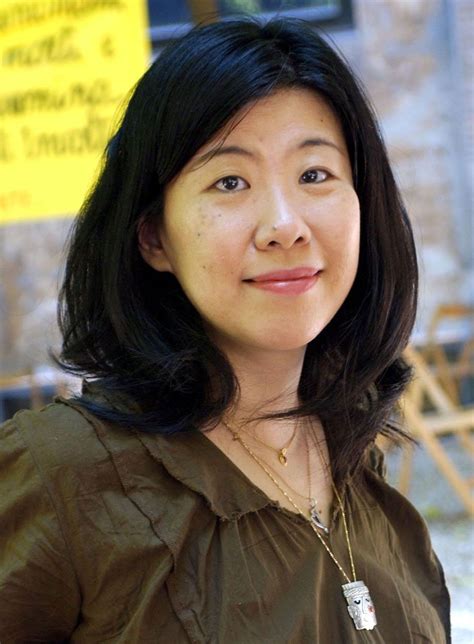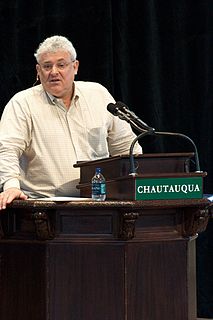Top 1200 Adoptive Parents Quotes & Sayings - Page 16
Explore popular Adoptive Parents quotes.
Last updated on April 19, 2025.
Ice Cube's the coolest dad. A lot of parents - a lot of kids do not think their parents are cool. Oh, no. My dad's cool... You know, I was born in 1991. That's when 'Boyz n the Hood' came out. So I've always see him on TV. I don't see everybody else's dad, you know. So I've always had a sense of, you know, he's cool. He's in the light.
It's a fine line of doing what's good for your life and what your parents want you to do, but also following your dreams. With my parents, when I was younger, I always had to do two things. If I was acting, I always had to do a sport or something on the arts side of things, along with that. That way, if one fell apart, I always had something else to fall back on.
Living in a place like Pakistan, very often you meet people who are migrating abroad. And sometimes you'll ask their parents, you know - you didn't try to stop them? Like, why didn't you say, don't go - I'll miss you? Stay with me. And, you know, people say, well, it's best for them. They have to go. And parents, you know, take on that sadness because they know it's better for their children if they leave.
Being branded to some subset of your fans is important when it comes to creating films and characters they're not familiar with. It's enormously difficult to market to a global audience, and it's becoming more difficult. A brand matters to parents, whereas kids are largely driven by their urgent reaction to the product. In the future, where there are going to be choices that have to be made by parents because it will be prohibitively expensive to access everything, those will be driven partially by brand.
Our parents will maybe sometimes when they are upset with us and we have been troublesome say something like "Mommy really doesn't like a naughty child." And we think that we have to earn the approval, earn the love of our parents. And then we transfer it to God and think we have to earn... We don't have to earn it! God loves us.
Like tens of millions of Americans, my parents were immigrants. They were poor and did not speak English well. They went to flea markets and sold gifts to make ends meet. Eventually, through hard work, they opened six gift stores in shopping malls. My parents achieved the American dream; they went from being poor to a home and gave my brother and me an amazing education. I wanted to serve the country that gave so much to my family.
She looked at me, confused. “He hardly knew me. My parents dated and got married before we knew what happened. Let’s just say we were not brought into the loop on that decision.” “That’s weird. I wasn’t brought into the loop with my parents’ marriage either.” “Really? How old were you?” “Twelve months.” She giggled. “I can’t imagine why they didn’t ask your opinion.
There's no question that a great teacher can make a huge difference in a student's achievement, and we need to recruit, train and reward more such teachers. But here's what some new studies are also showing: We need better parents. Parents more focused on their children's education can also make a huge difference in a student's achievement.
I get a lot of parents coming up to me, telling me they are grooming their kids to be professional athletes. I'm really against that. I think it's a great life, and yeah, you can lead them in that direction. I think a lot of parents live their lives through the kids. Because they didn't make it, they want their kids to make it. It puts a lot of undue pressure on the kids.
Friendships are different from all other relationships. Unlike acquaintanceship, friendship is based on love. Unlike lovers and married couples, it is free of jealousy. Unlike children and parents, it knows neither criticism nor resentment. Friendship has no status in law. Business partnerships are based on a contract. So is marriage. Parents are bound by law. But friendships are freely entered into, freely given, and freely exercised.
It would be hard to conceive a system of instincts more nicely adjusted, where the constituents should represent or support one another better. The husband has an interest in protecting the wife, she in serving the husband. The weaker gains in authority and safety, the wilder and more unconcerned finds a help-mate at home to take thought of his daily necessities. Parents lend children their experience and a vicarious memory; children endow their parents with a vicarious immortality.
My parents had a sidewalk cafe: every Sunday there was an accordion player and apparently I went through the motions, squeezing a shoebox. One of the regulars in 'the cafe said to my father: "I think you should get your son an accordion-that's what he's trying to do, with that shoebox." So they got me a little cardboard diatonic accordion-I still have it. I started to play the National Anthem, and things like that. It seems I was musically gifted-but my parents just never pushed in that direction.
I'd love to write some porn, but I don't know if I have the right engines. When I was a young man and I was tempted to write porn, imaginary parents would appear over my shoulder and read what I was writing; just about the point that I managed to banish the imaginary parents, real children would lean over my shoulder and read what I was writing.
His parents never talked about how they met, but when Park was younger, he used to try to imagine it. He loved how much they loved each other. It was the thing he thought about when he woke up scared in the middle of the night. Not that they loved him--they were his parents, they had to love him. That they loved each other. They didn't have to do that.
It all began when... they're funny, those words. Everyone uses them, without thinking what they mean. When does anything begin? With everyone it begins when you're born. Or before that, when your parents got married. Or before that, when your parents were born. Or when your ancestors colonised the place. Or when humans came squishing out of the mud and slime, dropped off their flippers and fins, and started to walk. But all the same, all that aside, for what's happened to us there was quite a definite beginning
Children make you confront your own childhood. Which I think is common. Suddenly you're remembering your own parents as parents, not to mention the fact that you're confronted by them as grandparents. So you also have that terrible shock, a mirror image of your own. You suddenly seem to be so helpless in the face of young children. And you think, "How did you ever bring up me?"
Both of my parents are music teachers. My mother owns the school that I taught in. My brothers and sisters are musicans. My mom pushed me all the time. She knew that I could do it. She knew more than I did. She thought I would go somewhere. She gave me the job and helped me get equipment, which a lot of parents don't do. Alot of my students had to go out and fight for it.
The assumption is that life doesn't need to be navigated with lessons. You can just do it intuitively. After all, you only need to achieve autonomy from your parents, find a moderately satisfying job, form a relationship, perhaps raise some children, watch the onset of mortality in your parents' generation and eventually in your own, until one day a fatal illness starts gnawing at your innards and you calmly go to the grave, shut the coffin and are done with the self-evident business of life.
One can tell a child everything, anything. I have often been struck by the fact that parents know their children so little. They should not conceal so much from them. How well even little children understand that their parents conceal things from them, because they consider them too young to understand! Children are capable of giving advice in the most important matters.
In the years of the Roman Republic, before the Christian era, Roman education was meant to produce those character traits that would make the ideal family man. Children were taught primarily to be good to their families. To revere gods, one's parents, and the laws of the state were the primary lessons for Roman boys. Cicero described the goal of their child rearing as "self- control, combined with dutiful affection to parents, and kindliness to kindred.
Like all Xhosa children, I acquired knowledge mainly through observation. We were meant to learn through imitation and emulation, not through questions. When I first visited the homes of whites, I was often dumbfounded by the number and nature of questions that children asked of their parents-and their parents' unfailing willingness to answer them. In my household, questions were considered a nuisance; adults imparted information as they considered necessary.
Suppose we concede that if I had been born of Muslim parents in Morocco rather than Christian parents in Michigan, my beliefs would be quite different. [But] the same goes for the pluralist...If the pluralist had been born in [Morocco] he probably wouldn't be a pluralist. Does it follow that...his pluralist beliefs are produced in him by an unreliable belief-producing process?
As a kid, you want to be liked for who you are. You don't want to be liked for who your parents are. You don't want to get a job because of who your parents are. You want to do it on your own, with your own gifts and your own value. So, I decided to spare my kids that and not be as pro-active as my dad was.
The American dream is about achieving happiness. When you become a fire fighter, a police officer or a teacher or a nurse, you know you're not going to become a billionaire. And what my parents achieved working as a bartender and a maid at a hotel after arriving here with nothing, no education, no money. The first words my dad learned in English where I'm looking for a job.You know what my parents achieved? They owned a home in a safe and stable neighborhood. They retired with dignity and they left all four of their children better off than themselves.
Kids have *_____ never* taken guidance from their parents. If you could travel back in time and observe the original primate family in the original tree, you would see the primate parents yelling at the primate teenager for sitting around and sulking all day instead of hunting for grubs and berries like dad primate. Then you'd see the primate teenager stomp up to his branch and slam the leaves.
They may already know too much about their mother and father--nothing being more factual than divorce, where so much has to be explained and worked through intelligently (though they have tried to stay equable). I've noticed this is often the time when children begin calling their parents by their first names, becoming little ironists after their parents' faults. What could be lonelier for a parent than to be criticized by his child on a first-name basis?
Andrew said you were the best person he ever knew." "He reached that conclusion before he saw me raise three barbarian children to adulthood. I understand your mother has six." "Right." "And you're the oldest." "Yes." "That's too bad. Parents always make their worst mistakes with the oldest children. That's when parents know the least and care the most, so they're more likely to be wrong and also more likely to insist that they're right.
I really put the fear of God into my son, because children are such sponges. The earlier you teach them the law of the land, the easier they'll accept it as an adult. I think parents who shelter their children are making a huge mistake. Kids are really pretty amazing. They can handle a lot. It's just us parents. We think we need to protect them, and then when the real world comes in, they're shattered. So I think I did the right thing in my parenting.
I think back to when I was growing up in Fort Worth, Texas, in the 1950s, during the [John] McCarthy era, with two parents who founded a Unitarian Church. We lived in a little frame house, and my bedroom was just down the hall from the kitchen. My favorite memories of childhood are of the smell of coffee wafting into my bedroom as my parents and their friends talked about the big, important things - about racism and about how to move our country to live its values.
We shall therefore take an appropriately correct view of the origin of our life, if we consider our own embryos to have sprung immediately from those embryos whence our parents were developed, and these from the embryos of their parents, and so on for ever. We should in this way look on the nature of mankind, and perhaps on that of the whole animated creation, as one Continuous System, ever pushing out new branches in all directions, that variously interlace, and that bud into separate lives at every point of interlacement.
Christian's family lived under the shadow cast by his parents. They had purposely become Striogi, trading thier magic and mortality to become immortal and subsist on killing others. His parents were dead now, but that didn't stop people from not trusting him. They seemed to think he'd go Strigoi at any moment and take everyone else with him. His abrasiveness and dark sence of humor didn't really help things, either.
I asked myself if I would kill my parents to save his life, a question I had been posing since I was fifteen. The answer always used to be yes. But in time, all those boys had faded away, and my parents were still there. I was now less and less willing to kill them for anyone; in fact, I worried for their health. In this case, however, I had to say yes. Yes, I would.
You are not an accident. Your birth was no mistake or mishap, and your life is no fluke of nature. Your parents may not have planned you, but God did. ... Long before you were conceived by your parents, you were conceived in the mind of God. He thought of you first. It is not fate, nor chance, nor luck, nor coincidence that you are breathing this very moment. You are alive because God wanted to create you!
Of course, we carry inside of ourselves our parents. Even when they are dead, we carry them inside ourselves. And they are carrying inside themselves their dead parents and so on and so forth. There is a legacy of language and culture and religion. In some cases, family stories told by grandparents to little grandchildren. When I say my novels are set in Israel in the last seventy years, this entails the fact that they begin hundreds or thousands of years earlier in time. Everybody comes from somewhere.
You of all beings know how fate works. What happened to you as a human happened because everyone from your parents on down tried to circumvent what was supposed to be – which ultimately was the destruction of the Atlantean pantheon. There was no changing that prophecy. But the way you suffered was completely unnecessary. Had your parents embraced their true destiny, you would have been saved years of torment. Fate will not be denied. We can sculpt it, but in the end we’re all pawns to our final destinies. Good, bad, or indifferent. (Savitar)
Now people are much more receptive because they can just go online and just Google your name and make sure you're not, you know, psycho. But, before, I think lot of opportunities were missed by a lot of girls. Also parents! The girls would go home and would say, "Oh, you know, I was just scouted." And the parents were, like, "You're not going to be a prostitute."
No one can survive childhood without being wounded. Everyone remembers at least one time when their parents rejected them, pushed them away, even though they may have still been in the womb, blind, and unable to speak. That's why, as adults, we all look for someone to become our parents again, and for someone to look after us in times of need. And we search for a person to live with who can provide the companionship we so desperately want.
Environment is a sculptor - a painter. If we had been born in Constantinople, then most of us would have said: 'There is no God but Allah, and Mohammed is his prophet.' If our parents had lived on the banks of the Ganges, we would have been worshipers of Siva, longing for the heaven of Nirvana. As a rule, children love their parents, believe what they teach, and take great pride in saying that the religion of mother is good enough for them.
Love is at the root of all healthy discipline. The desire to be loved is a powerful motivation for children to behave in ways thatgive their parents pleasure rather than displeasure. it may even be our own long-ago fear of losing our parents' love that now sometimes makes us uneasy about setting and maintaining limits. We're afraid we'll lose the love of our children when we don't let them have their way.
People are gonna think that MTV censored me, and they really didn't. I really wanted to try to make a show that didn't rely on offensive, edgy material because I think it was an exercise in trying to write without that. Because I see that as a crutch sometimes and I want to know that I can do something funny and worthwhile without that. And also make a show that my parents would like and that kids could watch with their parents.
Any father…must finally give his child up to the wilderness and trust to the providence of God. It seems almost a cruelty for one generation to beget another when parents can secure so little for their children, so little safety, even in the best circumstances. Great faith is required to give the child up, trusting God to honor the parents’ love for him by assuring that there will indeed be angels in that wilderness.
'Our parents' generation had it a lot tougher than we did. They had to live through the Depression, World War II, and then they had to, you know, try to pick up the pieces of their lives and bring up their children. And, it was a great example for us. I guess we grew up with a certain amount of the ethics our parents had, which is, you know: work hard, make your own way, be independent.
Ambivalence reaches the level of schizophrenia in our treatment of violence among the young. Parents do not encourage violence, but neither do they take up arms against the industries which encourage it. Parents hide their eyes from the books and comics, slasher films, videos and lyrics which form the texture of an adolescent culture. While all successful societies have inhibited instinct, ours encourages it. Or at least we profess ourselves powerless to interfere with it.
Conservatism means re-embracing true free enterprise. True free enterprise, which I believe and not because my parents were wealthy, not because I inherited millions of dollars because I did not, but because as I walked on to the stage here today, I walked through the kitchen of this hotel and I met people and shook the hands of people who are doing the jobs my parents once did.
My parents put me in the water very early, and also had me skiing at a very early age. They put me on skis when I was one and a half. I was fortunate to have parents who understood the importance of exposing their kids to different sports, different cultures and different activities in order to discover what we liked and what we didn't like. They didn't push us, they just gave us many things to choose from.
I would say I'm black because my parents said I'm black. I'm black because my mother's black. I'm black because I grew up in a family of all black people. I knew I was black because I grew up in an all-white neighborhood. And my parents, as part of their protective mechanisms that they were going to give to us, made it very clear what we were.
A two-year-old can be taught to curb his aggressions completely if the parents employ strong enough methods, but the achievement of such control at an early age may be bought at a price which few parents today would be willing to pay. The slow education for control demands much more parental time and patience at the beginning, but the child who learns control in this way will be the child who acquires healthy self-discipline later.
Happiness is not like we were walking around fingering razor blades or anything like that. But it just sort of seems as if - we sort of knew how happy our parents were, and we would compare our lives with our parents and see that, at least on the surface or according to the criteria that the culture lays down for a successful, happy life, we were actually doing better than a lot of them were.
Until that time, her betrayals had filled her with excitement and joy, because they opened up new paths to new adventures of betrayal. But what if the paths came to an end? One could betray one's parents, husband, country, love, but when parents, husband, country, and love were gone - what was left to betray?
Renegade scientists and totalitarian loonies are not the folks most likely to abuse genetic engineering. You and I are-not because we are bad but because we want to do good. In a world dominated by competition, parents understandably want to give their kids every advantage. ... The most likely way for eugenics to enter into our lives is through the front door as nervous parents ... will fall over one another to be first to give Junior a better set of genes.
Normal people, fear the day their parents die. Screwed up people, fear that their parents are going to live forever. Showing up at your house at weird hours of the night, smelling all funny, with a bunch of their friends. Hey boy, this is Harold, Cecil and Dicky. Dicky lost his wife about a year ago. I hear Erin made cookies. Where can I put my shoes ? If that doesn't scare you, you're not human.
Compared to other parents, remarried parents seem more desirous of their child's approval, more alert to the child's emotional state, and more sensitive in their parent-child relations. Perhaps this is the result of heightened empathy for the child's suffering, perhaps it is a guilt reaction; in either case, it gives the child a potent weapon--the power to disrupt the new household and come between parent and the new spouse.

